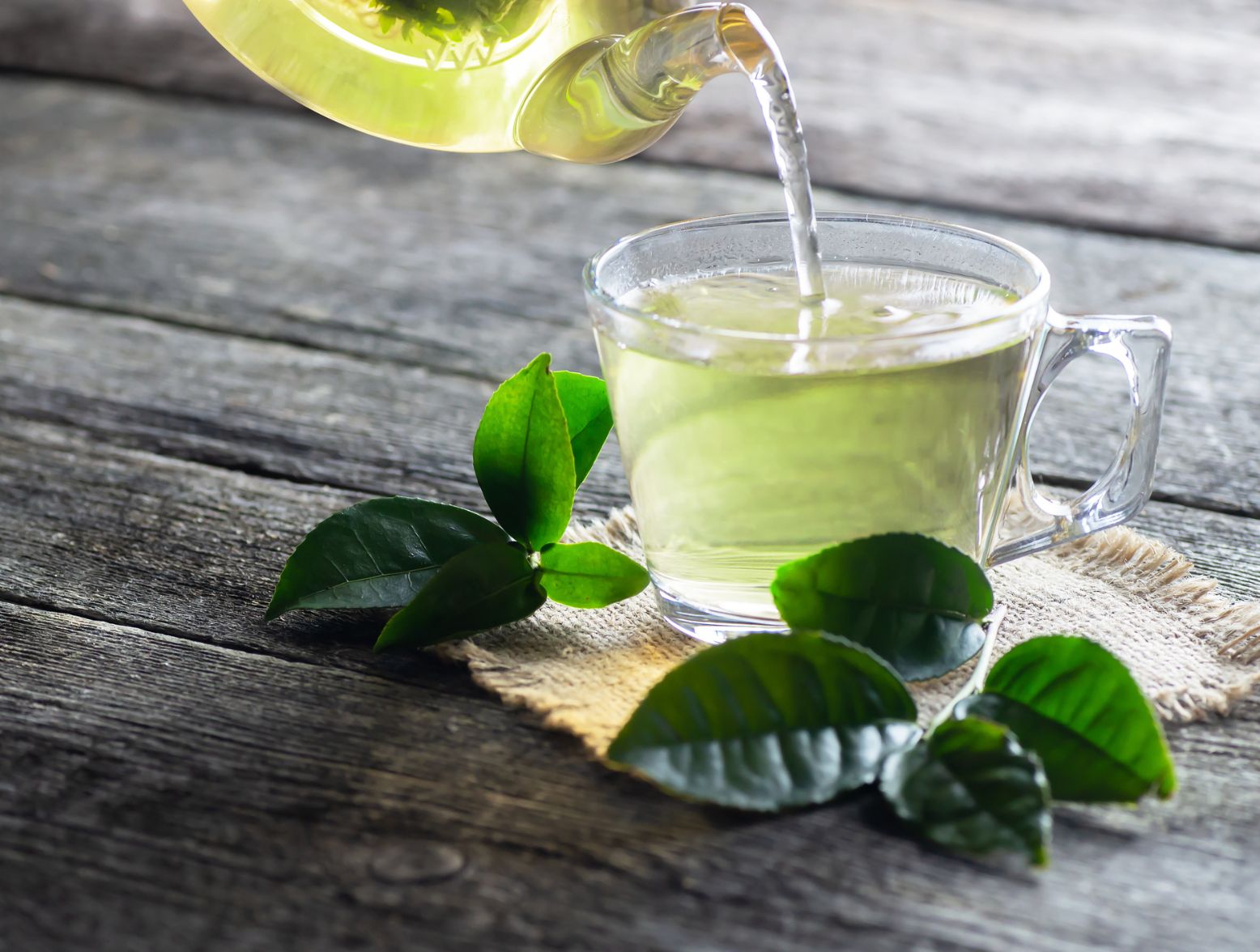Pesticide Exposure and the Health Risks in Your Produce
As I washed some grapes and put them on the table, my Dad brought up a really good point about fruits and veggies. He said, “With all these pesticides they’re…

A peach tree with fruit grows along Dave Krop’s fence in his Newport News, Virginia garden, July 12, 2011. (Joe Fudge/Newport News Daily Press/Tribune News Service via Getty Images)
. (Joe Fudge/Newport News Daily Press/Tribune News Service via Getty Images)As I washed some grapes and put them on the table, my Dad brought up a really good point about fruits and veggies. He said, "With all these pesticides they're spraying on our fruits and vegetables, it's making me wonder how good they are for us." I totally agree with him. We are always told to eat more fruits and veggies for our health, but if they're loaded with cancer-causing pesticides, how healthy can they actually be?
According to CBS6, pesticide exposure leads to increased risks of cancer, diabetes, and cardiovascular disease. I guess the bigger question is, why are these pesticides even allowed in our food in the first place? Shouldn't there be stricter regulations for chemicals that can cause us harm? It's not just about our health, but also the environment. Think about it, if they're harmful to us, imagine what they're doing to the soil and water. Speaking of water, whatever goes in the water, we end up drinking!
Pesticide Exposure During Pregnancy and Childhood
If that's not enough, I have been reading about how pesticide exposure during pregnancy and childhood can have serious effects on development. That is pretty scary to think about when we try to eat fruits and veggies to be healthy, but they are covered in unhealthy chemicals. I feel highlighting the heightened vulnerability of pregnant women and children to the effects of pesticide exposure adds a dimension of urgency to the conversation. Studies linking prenatal and childhood pesticide exposure to developmental delays and neurological disorders. With this in mind, I think the need for enhanced protection for this should be among the FDA's regulations.
Maybe we should care a little less about picking out the perfect-looking peach and consider more organic fruits and vegetables. If a peach has a little bug hole, I would pick that over a perfectly frown peach. Also, it is very important to wash your fruit and veggies thoroughly before putting them in your mouth. Are we overreacting, or is this something we really need to pay attention to? I just want to make sure we're eating healthy without putting ourselves at risk.
Signs You’ll Live a Long Life
There are some special signs you'll live a long life and even possibly make it to 100. When you're in your teens, you might feel like you're going to live forever. But, as the years ago by, you're probably getting more aware of your fallibility and the inevitability that one day, you'll no longer be on this Earth. Not to sound depressing, but the good news is that there are these signs you'll live a long life and things you can do to increase your chances of doing so.
The Average Lifespan of Americans
Before we get to some signs you'll live a long life, let's talk about the average lifespan of Americans today. According to the experts at Healthsystemtracker.org, "In 1980, life expectancy at birth in the U.S. and in comparably large and wealthy countries was similar, but over recent decades, life expectancy improved by much more in peer nations than it has in the U.S. The COVID-19 pandemic increased mortality and premature death rates in the U.S. by more than it did in most peer countries, widening a gap that already existed before the pandemic." So, the lifespan of Americans is trending in the wrong direction. In fact, according to their numbers, life expectancy in the U.S. went down by 1.3 years from 2019 before the COVID-19 pandemic to 2022. But, in "peer countries," life expectancies dropped by an average of 0.5 years in that same time window. Life expectancy in the U.S. went up by 1.1 years from 2021 to 2022, following the pandemic, but it's still "well below pre-pandemic levels and continues to lag behind life expectancy in comparable countries, on average," they note.
According to the CDC, the life expectancy for both sexes at birth is 76.4 years. For males, it's 73.5 years, and for females, it's 79.3 years. The CDC also notes that, "The infant mortality rate was 543.6 infant deaths per 100,000 live births in 2021. The change in infant mortality from 2020 was not statistically significant." They add that, "Nine of the 10 leading causes of death in 2021 remained the same as in 2020. Heart disease, cancer, and COVID-19 remained the top 3 leading causes." If you're wondering about infant mortality, the leading causes of infant death in 2021 according to the experts at the CDC were "congenital malformations, low birth weight, sudden infant death syndrome, unintentional injuries, maternal complications, cord and placental complications, bacterial sepsis of newborn, respiratory distress of newborn, diseases of the circulatory system, and intrauterine hypoxia and birth asphyxia)." But, enough about death. Let's get into some things to look out for that are signs you'll live a long life. Hopefully you'll make it to 100 or older.
Signs You'll Live a Long Life
1. You Eat These Healthy Things
According to a University of Michigan study (via TheHealthy.com), "Women who consumed the most veggies and fruit had a 46 percent lower chance of dying over a five-year period compared with those who ate them infrequently. The study involved 700 participants in their 70s.

Getty Images / Deagreez
2. You Workout (Specifically, Run 40 Minutes a Day)
According to NBCNews.com, "Scientists in California found that middle-aged people" who ran "for a total of about 5 hours per week lived longer and functioned better physically and cognitively as they got older." They state that the "researchers tracked runners and nonrunners for 21 years." Aside from running, CNBC.com states that, "Strength training twice a week and aerobic exercise three times a week, even if for just 10 minutes a day" also helps.

Getty Images / nd3000
3. For Women, You Had a Baby After Age 44
For women, if you were pregnant and had a baby naturally after age 44, "you're about 15 percent less likely to die during any year after age 50 than your friends who had their babies before age 40, reports a recent University of Utah study," via NBCNews.com. Lead researcher Ken R. Smith, PhD, professor of human development at the university, tells NBCNews.com, "If your ovaries are healthy and you are capable of having children at that age, that's a marker that you have genes operating that will help you live longer."

Getty Images / kieferpix
4. You Socialize
The National Library of Medicine states that people with bigger social networks and who socialize tend to live longer. In the study, Dr. Freeman states, "People who have more social support tend to have enhanced mental health, cardiovascular health, immunological functioning, cognitive performance, resilience, life satisfaction, stress response and more."

Getty Images / master1305
5. You're Slim in the Waist
TheHealthy.com states that, "Women with a waist of 37 inches or more had a life expectancy that was five years lower after age 40 than did women with a waist of 27 inches or less, found one study. For men, a waist of 43 inches or more was linked to a three-year decrease in life expectancy compared with those with a waist of 35 inches or less."

Getty Images / demaerre
6. You Drink Tea Each Day
Apparently, drinking one or two cups of tea a day is good for your health. "Both green and black tea contain catechins, which relax blood vessels. However, you should be making the tea yourself; in ready-to-drink teas, most of the catechins have probably dissolved already, so they don’t have quite the same heart-healthy power," says TheHealth.com.

Getty Images / mescioglu
7. You're Careful with Your Calories
"Researchers in St. Louis reported that men and women who limited their daily calories to 1,400 to 2,000 (about 25 percent fewer calories than those who followed a typical 2,000-to 3,000-calorie Western diet) were literally young at heart — their hearts functioned like those of people 15 years younger," says NBCNews.com. So, make every calorie count, and keep calories low.

Getty Images / CR
8. You Get Your Sleep
Getting a good night's sleep is important to overall health. According to CNBC.com, getting good sleep is one of the factors to make it to age 90. So, turn off Netflix and get some shut eye.

Getty Images / Prostock-Studio
9. You Have a Purpose in Life
Do you wake up each day with a purpose? Do you feel needed in this world? According to a 2014 study in the journal of Psychological Science, having a sense of purpose means you'll have a longer life. In the study, they report that people in the study who passed away, about 10% of the participants, had reported lower scores for purpose in life.

Getty Images / Mirel-Kipioro
Bonus - Take This Longevity Test
The experts at Media.nmfn.com actually have a lifespan test that you can take online. I took it, and I won't divulge the age is says I'll make it to, but I was happy and pleasantly surprised by the result. It asks you some basic health and family questions. Take the test here, and hopefully you'll be happy with the result.

Getty Images / Lordn







